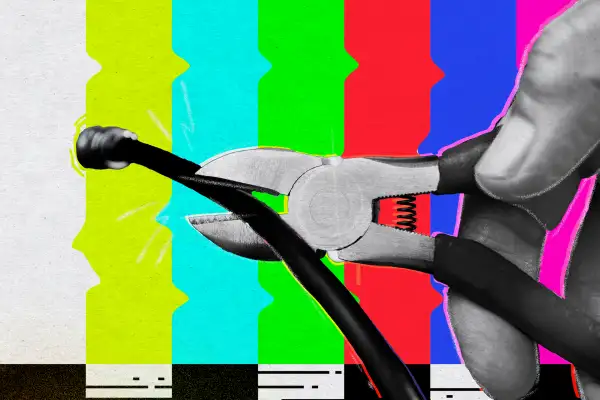More Americans Cancel Expensive Cable TV Packages as Inflation Soars

Americans have been ditching pricey cable packages for years, but cord-cutting picked up the pace as inflation spiked in early 2022. Growth is slowing for live TV streaming subscriptions and on-demand services like Netflix and Hulu are slowing as well.
Cable providers including Comcast, Verizon, Dish and others lost a whopping 3.2 million subscribers in the first quarter of this year, according to recent data gathered by Variety.
While some of the decline is always expected at the start of the year, Variety notes, the losses are much bigger compared to the first quarters of 2021 and 2020, when 2.2 million and 2.4 million customers canceled their cable services, respectively.
Money clearly seems to be a factor in many subscribers deciding to cancel cable. A recent analysis of on-demand subscription video services from the research firm MoffettNathanson found that the cost of subscription TV was the most commonly given reason for switching from traditional cable to streaming services.
The report notes, however, that the cost rationale is gradually becoming less important for consumers who stream on Netflix, Hulu or Amazon Prime rather than pay for cable. In a poll of more than 22,000 people conducted earlier this year, the second most common reason for switching was that “all the shows I currently watch are available on streaming services.”
Overall, it's becoming much more common for people to pay for home internet and some streaming services, while skipping the monthly cable bill.
In the first quarter of 2021, 26% of U.S. households subscribed to at least one streaming service, like Netflix or Disney+, without a pay TV (aka cable) package, according to MoffettNathanson. A year later, that figure climbed to 38%. Over the same time span, the portion of households subscribing to both cable TV and a streaming service dropped from 49% to 42%.
Streaming growth is also slowing
Live TV streaming services — bundles that have dozens of live TV channels and are similar to cable but are available online — are gaining subscribers as traditional cable loses them, but the gains are coming at a slower rate than in past years. FuboTV, Hulu + Live and Sling TV collectively added 642,000 subscribers in the first quarter, according to Variety, compared to 866,000 in the first quarter of 2021 and 1.3 million in the first quarter of 2020. (YouTube TV subscriber numbers were not included in the study.)
As for on-demand streaming services, Netflix remains the most popular option — but its growth has declined significantly. MoffettNathanson's report said that 56% of U.S. households had at least one member with a Netflix subscription in the first quarter of 2022, up just a smidge from 54% a year prior. Netflix's dismal growth outlook has led to a steep drop in the company's stock price (down nearly 75% so far this year), as well a strategic shift to consider launching cheaper subscription plans (with ads).
The competition to win viewers' screen time has arguably never been hotter, at the same time that household budgets are being pinched. With inflation at a 40-year high, everything is getting more expensive and consumers are looking for ways to pare back their spending.
A survey conducted in March by Momentive for CNBC and Acorns found that 35% have canceled a monthly subscription within the previous six months, while 36% said they would consider doing so if higher prices persist.
It’s not hard to imagine that more people will cut the cable cord, and streaming services like Netflix or Hulu might be on the chopping block too.
More from Money:
The 6 Best TV Live Streaming Services of 2022
Netflix Could Launch a New Plan (With Ads) That's as Cheap as Hulu or Disney+
Millions of Americans Now Qualify for Free High-Speed Internet

